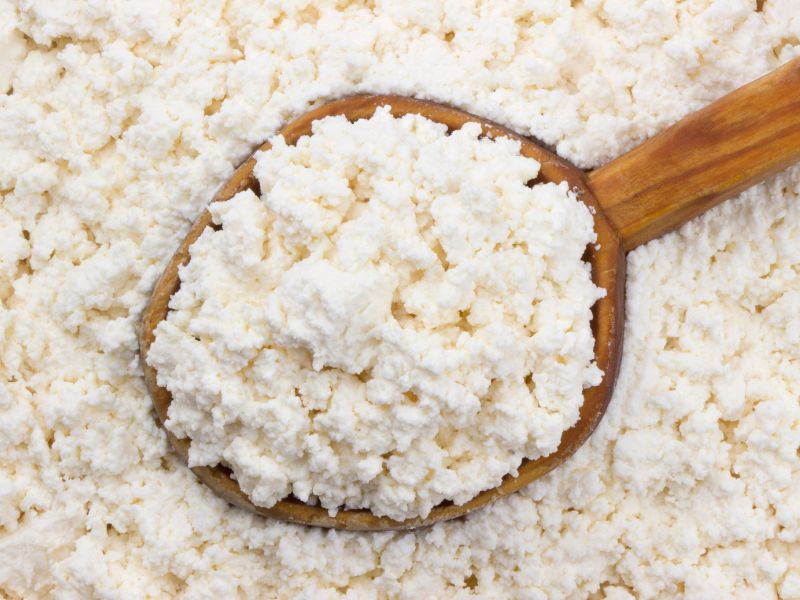Cottage cheese is a versatile dairy product that is widely used in various recipes, including salads, dips, and smoothies. However, it can be challenging to consume an entire container of cottage cheese before it goes bad.
As a result, many people wonder if they can freeze cottage cheese to extend its shelf life. In this article, we will answer the question, “Can you freeze cottage cheese?” We will also provide tips for freezing and thawing cottage cheese and discuss the effects of freezing on its quality and safety.
Can Cottage Cheese Be Frozen?
The short answer is yes; you can freeze cottage cheese. However, it is essential to understand that freezing may affect the texture and taste of cottage cheese. Cottage cheese has a high water content, which can cause the cheese to become grainy and separate during freezing. Additionally, the cheese may lose some of its tangy flavors when frozen.
Despite these potential drawbacks, freezing is an excellent way to extend the shelf life of cottage cheese. When stored correctly, frozen cottage cheese can last up to six months.
Freezing Cottage Cheese
Before freezing cottage cheese, it is crucial to drain any excess liquid to minimize the risk of freezer burn. Here are the steps to follow when freezing cottage cheese:
- Drain any excess liquid from the cottage cheese using a cheesecloth or a fine-mesh strainer.
- Transfer the cottage cheese to an airtight container or a freezer bag.
- Squeeze out as much air as possible before sealing the container or bag.
- Label the container or bag with the date of freezing.
- When freezing cottage cheese, it is important to remember that it can be challenging to thaw individual portions. Therefore, it is best to freeze the cheese in small batches to minimize waste.
Thawing Frozen Cottage Cheese
The best way to thaw frozen cottage cheese is to transfer it to the refrigerator the night before you plan to use it. Allow the cheese to thaw slowly in the fridge for 24 hours before using it.
Alternatively, you can thaw frozen cottage cheese by placing the container or bag in a bowl of cold water for a few hours. Avoid using hot water or a microwave to thaw the cheese, as this can cause it to become rubbery or grainy.
Quality and Safety of Frozen Cottage Cheese
Freezing cottage cheese can affect its texture and taste. The high water content in cottage cheese can cause it to become grainy and separate during freezing. Additionally, the cheese may lose some of its tangy flavor when frozen. However, these changes are relatively minor, and most people can still enjoy frozen cottage cheese.
The safety of frozen cottage cheese also depends on how well it was stored. If the cheese was frozen and thawed correctly, it is safe to consume. However, if the cheese was left at room temperature for too long or exposed to air during freezing, it may be unsafe to eat. It is essential to inspect the cheese for any signs of spoilage, such as a foul odor, discoloration, or mold, before consuming it.
Alternative Ways to Store Cottage Cheese
If you are not comfortable with freezing cottage cheese, there are other ways to extend its shelf life. One method is to store the cheese in an airtight container and place it in the refrigerator. When storing cottage cheese in the fridge, make sure to keep it in the back of the fridge, where the temperature is the coldest. This will help to prevent the cheese from spoiling quickly.
Another way to store cottage cheese is to use a preservative, such as vinegar or lemon juice. Adding a tablespoon of vinegar or lemon juice to a container of cottage cheese can help to extend its shelf life by a few days. This method can be especially useful if you only need to store the cheese for a short period.
Conclusion
Cottage cheese is a popular dairy product that is used in a wide range of recipes. However, its short shelf life can be challenging for many people. Freezing cottage cheese is a great way to extend its shelf life, and it can last up to six months when stored correctly. However, it is important to drain the excess liquid before freezing and to thaw the cheese slowly to prevent it from becoming grainy or rubbery.
While freezing cottage cheese may affect its texture and taste, the changes are relatively minor, and most people can still enjoy frozen cottage cheese. However, it is crucial to inspect the cheese for any signs of spoilage before consuming it.
If you are not comfortable with freezing cottage cheese, there are other ways to extend its shelf life, such as storing it in the refrigerator or using a preservative. Whichever method you choose, make sure to follow the correct storage guidelines and inspect the cheese for any signs of spoilage before consuming it.
In conclusion, freezing cottage cheese is an excellent way to extend its shelf life and minimize waste. With a little preparation and care, you can enjoy cottage cheese for months to come.




